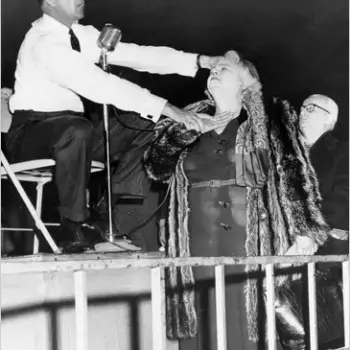The American Sniper movie is stirring up big controversy in some circles for supposedly glorifying war. But it’s also a monster hit, possibly on its way to becoming the most popular war movie ever. Film critic Ann Hornaday says that it’s an example of a new kind of war movie: the military procedural.
On television, police procedurals have become extremely popular, stories that concentrate on showing how police officers do their jobs. All of the shows about forensics specialists, physicians, lawyers, etc., are of the same type, showing professionals at work as they overcome obstacles and accomplish the tasks set before them. That is to say, all of these procedurals are about vocation!
From Ann Hornaday, ‘American Sniper’ exemplifies a new kind of war film: The professional procedural – The Washington Post:
That “American Sniper” has been greeted with such different interpretations is a testament to a movie that never hews to obvious ideological lines. But the wildly divergent readings are also typical of an emerging genre of war film that “American Sniper” exemplifies, one that strikes a different focus and tone than its predecessors. Films of earlier eras commonly portrayed boots-on-the-ground soldiers as either victims, demons or mythologized heroes. In today’s war movies, they’re professionals, represented on a par with journalists, attorneys and police detectives whose journeys have propelled movie narratives for decades.
“American Sniper” joins a slew of wartime professional procedurals that take similar positions toward their protagonists, from 2013’s “Lone Survivor” to last year’s “Fort Bliss,” about an Army medic and single mother returning home after a tour in Afghanistan. The filmmakers who have perfected the genre most successfully are director Kathryn Bigelow and screenwriter Mark Boal, whose superb wartime thrillers “The Hurt Locker” and “Zero Dark Thirty” best express the new sensibility: Their main characters aren’t cowboys or ill-fated cannon fodder but skillful, serious-minded operators who are focused on the duty at hand.












